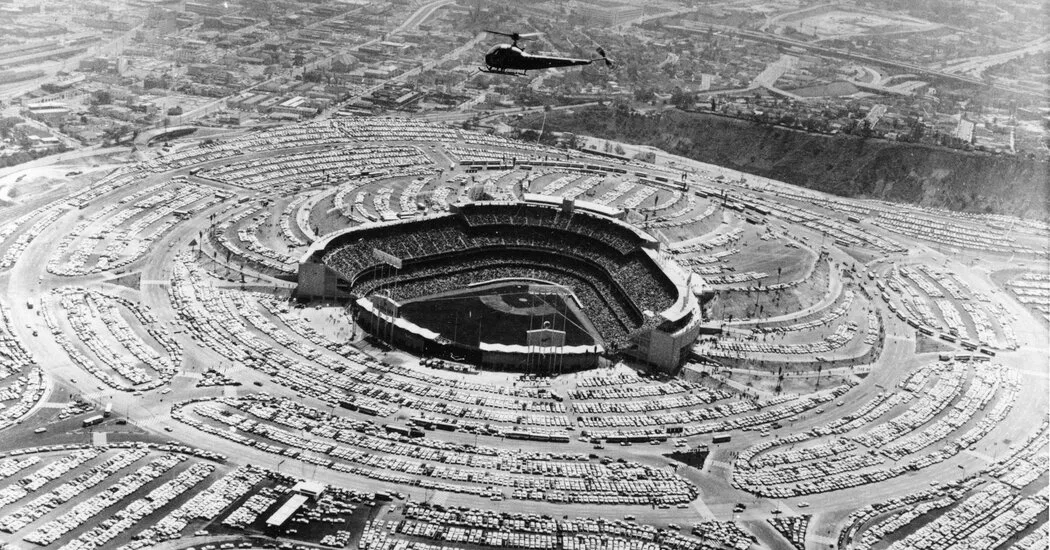
About 1,800 families were forced to leave the land, now known as Chavez Ravine, that eventually became Dodger Stadium. A measure in the State Assembly could provide them with compensation or land.
A bill introduced in the California Legislature on Friday will seek reparations for the families of people who were displaced from their homes in Los Angeles in the 1950s on land that eventually became the site of Dodger Stadium.
The bill, introduced by Assemblywoman Wendy Carrillo, Democrat of Los Angeles, came after years of calls from organizers who have asked for reparations, either through money or the return of land that they contend was taken from their families.
The land, nestled between the San Gabriel Mountains and downtown Los Angeles, is widely known today as Chavez Ravine. But more than 60 years ago, the roughly 300-acre expanse was the three communities of Palo Verde, La Loma and Bishop, where about 1,800 families, most of whom were Mexican American, lived, according to the bill.
The residents of those communities were displaced in the 1950s by the city of Los Angeles, which had said that the land was needed to build affordable housing, according to the bill. The housing project was never built, and eventually the land was acquired by the Dodgers after they moved to Los Angeles from Brooklyn in the late 1950s.
“What happened to the families at those three communities, which are now known as Chavez Ravine, was unjust,” Ms. Carrillo said in an interview on Monday. “The promise of housing was never fulfilled, and those families were also robbed of homeownership and generational wealth because their homes were taken away.”
The bill is one of many that have been recently introduced in California that seek reparations for marginalized communities. If passed, the bill, the Chavez Ravine Accountability Act, would call on the city of Los Angeles to form a nine-member task force to provide compensation to the displaced or their descendants. The measure proposes different forms of compensation, including an offer of city-owned land or fair-market-value compensation.

